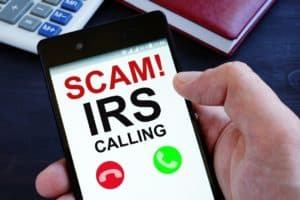When you think of crowdsourcing, do you think of the United States Declaration of Independence? Probably not, but that document stands as an ideal early example of crowdsourcing: many cooks actually improved the pot.
Yes, Thomas Jefferson wrote the first draft, but he had some help with suggestions for improvement from the likes of Benjamin Franklin, John Adams, Roger Sherman, and Robert Livingston, who were fellow committee members.
Then the delegates in the Continental Congress mulled over the draft, and to the aggravation of Thomas Jefferson — one of those temperamental writers — after a few more changes, they approved and signed the document.
The 56 men who signed the Declaration did not have the luxury of anonymity. They risked everything in what amounted to an act of treason against the British crown. They ended the document with probably the ultimate admission of crowdsourcing: “..we mutually pledge to each other our Lives, our Fortunes and our sacred Honor.”
If the writing of our country’s most important document can be compared to crowdsourcing, let’s take it another step and compare the Declaration of Independence to a modern blog — not that much of a stretch, really, given the way information was spread by brief pamphlets in those days.
The Declaration of Independence and the modern blog fulfill common purposes. Three examples follow:
1. A blog adds content and value to something bigger than itself– an e-commerce website, a freelance writer’s portfolio, etc. –>
The Declaration of Independence added value to the colonists’ grievances by articulating their case fully and plainly.
2. A blog draws attention to a product, campaign or idea. It is an ideal way to incorporate the words that web searchers use. –>
The Declaration of Independence is the source of the most powerful keywords in the American lexicon. Every American knows them: “that all men are created equal, that they are endowed by their Creator with certain unalienable Rights, that among these are Life, Liberty and the pursuit of Happiness.” People in other countries seeking liberty and independence have repeatedly returned to those words for inspiration.
3. A blog keeps the readers up to date on the big picture. –>
The Declaration of Independence brought the world up to date on all “the history of the present King of Great Britain,” who had an unabashed record “of repeated injuries and usurpations.”
In fairness to King George, Great Britain was pretty much going bankrupt trying to defend and protect its colonials from the French and rowdies who liked to throw expensive tea into the Boston harbor. Perhaps if communication had been more instantaneous in those days, both sides might have been able to compromise and understand each other’s point of view.
However, reading the list of complaints against the king in the document leads even the most casual observer to conclude that this was a case of irreconcilable differences.
George’s crowd in Parliament believed that the British government and His Majesty were the ultimate and unquestionable authority in determining the future of the vast American continent. The crowd on this side of the Atlantic figured otherwise. They said so with equal fervor and nearly unassailable logic: “We hold these truths to be self-evident…”
We mean absolutely no disrespect when we compare our Declaration of Independence to a blog. On the other hand, even Thomas Jefferson admitted that the hallowed document was never intended to “find out new principles or new arguments never before thought of.”
The document was no more than a simple communication tool. In his later years he wrote in a letter to Henry Lee that he just wanted to:
“…place before mankind the common sense of the subject, in terms so plain and firm as to command their assent..”
When the Declaration of Independence arrived on the local and world scene, crowdsourced as it was, it went viral. The rest, of course, is history.






